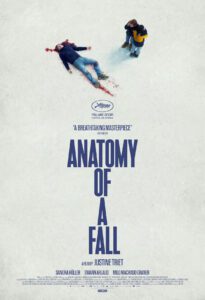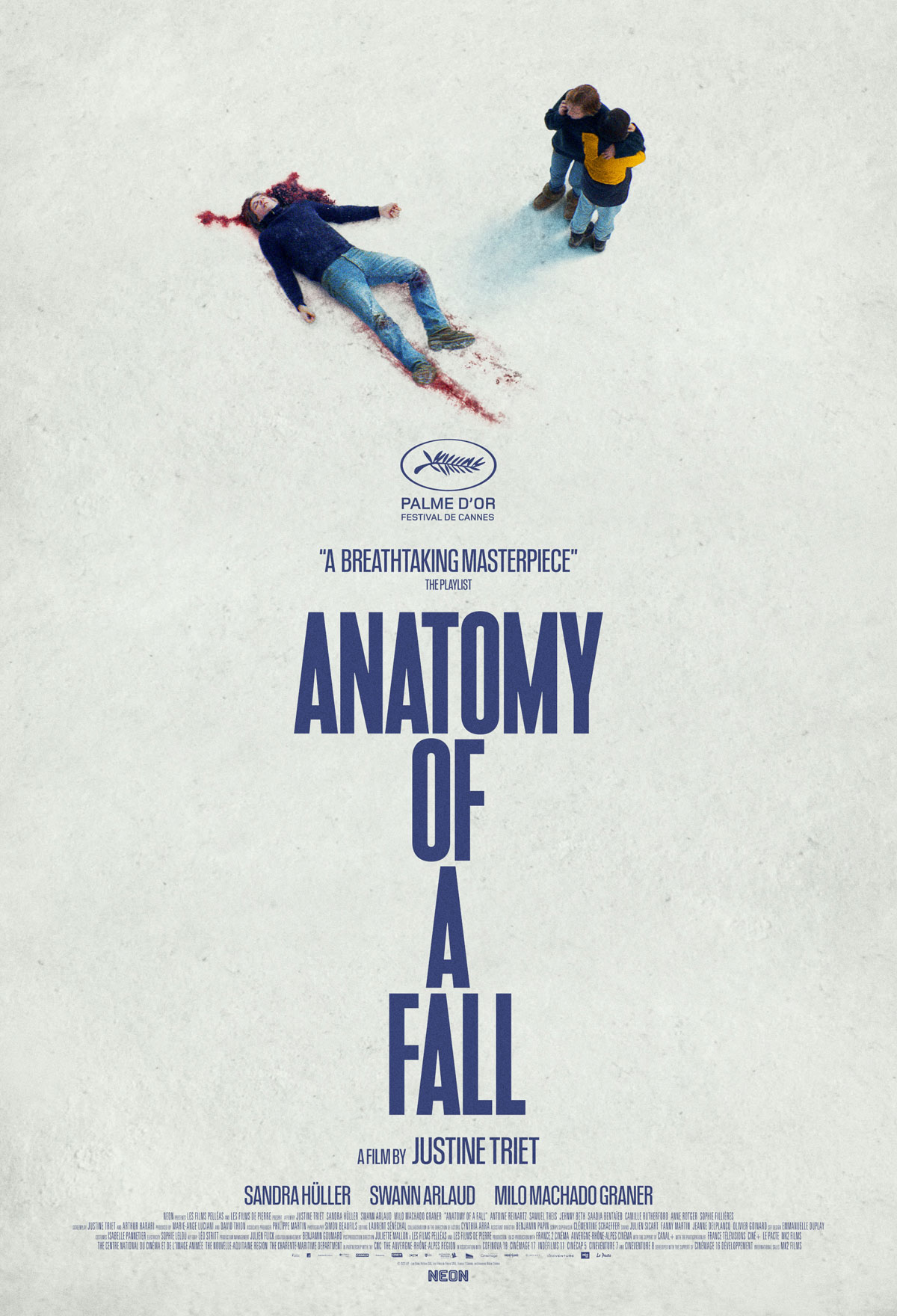
Director: Justine Triet
Release Year: 2023
Runtime: 2h 31m
I’m not sure how monumentally good Anatomy of a Fall is, ultimately. But for whatever reason it stuck with me. It elicited conversation and conjecture. It made me wonder if perhaps someone actually wrote an intelligent script, cast some actors who can actually act and purposely made something ambiguous not because they couldn’t think of an ending, but because they actually didn’t care about tying a bow on things. And perhaps ambiguity is the point. This was where my brain was at after finishing Saltburn as well, but with that movie my curiosity and good will quickly faded. Because that is a trendy film. A movie made to be junky and almost tawdry. A film made in the millennial age by a borderline millennial. This one, though — while made by a Gen Xer — felt way more adult. More interested in peoples’ lives and relationships both personal and professional. And French.
What is truth? I’m not sure this is a question I’ve ever asked on this site. But it’s a question Anatomy of a Fall asks over and over again. Because there is both objective truth and subjective truth. What our old friend Kellyanne Conway called “alternative facts.” Of course, in reality, facts is facts. But when someone ends up dead — in this case, the husband of our main character, Sandra Voyter (Sandra Hüller) — those facts only matter in the eyes of a jury. And those facts are malleable. Because memory is fallible. Stories are just that. And perception can be bent because of emotion or circumstance. We could all hear the same five facts and walk away with completely different conclusions. Which, ultimately, seems to be the intention of this film. We can all watch the same film and draw completely different conclusions.
The whole setup here led me to believe we had another Jagged Edge on our hands. Or Double Jeopardy (a film I’ve never seen, but seem to recall the trailer). Or any number of noir-ish husband-wife murder mysteries with a twist ending. With or without the court case, acquittal and subsequent craziness. It felt like every other movie in the 80s and 90s dealt with these themes. There were copies of copies of copies. Crazy women. Scorned women. Innocent men who turned out to not be so innocent. Sweet women who turn out to not be so sweet. In this case we have a woman who is not so sweet, however. A mother of an almost-blind son. Wife of a writer who can’t write. Author of books she can write. A German moved to middle-of-nowhere France — her husband’s hometown — into a fixer-upper chalet surrounded by people whose language she doesn’t really speak. The give and take in the relationship more give than take. Or more take than give depending on which spouse you ask. Persepctive. But what’s clear is that the marriage is struggling. The husband jealous of his wife’s writing success and feeling stuck in this half-finished house and caretaking for their young special-needs son. Where he feels put-upon and helpless, she is a practical person who sees the division of labor as logical. She gets to write and make the money and he can bumble around the house and mostly take care of the son. Practical.
So when Samuel (Samuel Theis) falls out of the attic window and splats on the ice below, Sandra is the prime suspect. Her German-ness doesn’t do her any favors. Neither does her son’s changing stories. And her infidelities. And the fact Samuel happens to record shit all the time, including their fights where she comes of as not so kind. None of these things in and of themselves equal murder, though. Even though they’re all facts. But all of these facts added up don’t equal the fact she murdered her husband. Even when her husband’s shrink comes in and tells the court what a terrible person her now-dead husband said she was. Still not murder. And this is where the whole thought-experiment of facts comes into focus. This shrink can walk into a courtroom and tell a very one-sided story about the plaintiff. All based on the persepctive of the husband who came to a shrink who asks him to tell him his troubles. So he faces the jury and tells them what a terrible woman she is. Because of course he’s going to say that because the husband only came in and told him the bad stuff. The bad stuff completely from his perspective. But what about the other side of the record? The mirror to his opinion? Also, the French court system is really weird. You seem to be able to just talk when you want, interrupt people, ask questions of anyone at any point and just generally be a punk. The prosecutor, in fact, is just going for in this movie. The actor sneers and is generally sarcastic and has some serious bad-guy energy. All in French, of course.
The movie itself is probably 50/50 English and French. Or more English, I guess, since Sandra and Samuel’s common language is English. And the rest of the characters speak French to each other and mostly English when they can to Sandra (whose French is apparently really bad). Hüller isn’t an actress I’m really familiar with, but she’s excellent in the role. She has a ton to do, is pretty much in every scene, and the script is pretty dense. She has a whole range of emotions, and must speechify at times without sounding too scripted. She’s terrific. Now, there are some small plot points that I’d normally be nit-picky about — like Sandra’s good friend just happens to be a lawyer who also has never taken on a murder case, but takes on hers without any question or backup? That’s… not a thing that happens. And some of the police and investigation work around Samuel’s death is kind of absurd and amateurish. Maybe on purpose? And then there’s the whole thing with the dog that I can’t even explain in less than 700 words, so I won’t. At first I felt the ending to the court case was a little too abrupt, but in retrospect I kind of liked the way they handled it in the context of the film’s message. I do question why the thing needed to be two-and-a-half hours long, but I suppose that’s just what movies do these days. I mean, why does a Marvel movie get a pass when a premium drama doesn’t? All in all, I was pleasantly surprised by how much I enjoyed this film. It certainly wasn’t perfect, but it was smart and adult and non-commercial in the best way. Bravo!


